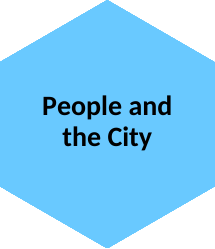Jorge Aguero
Associate Professor, Economics and El Instituto
 Primary Research Theme
Primary Research Theme
Secondary Research Themes
Economic and Community Development, Healthy Cities
Recent Cities-related Projects
- Improving Urban Schools in Developing Countries: A Regression Discontinuity Approach to the Expansion of the School Day: Recent work has shown that policies that send children to a higher-achieving school or to a class within a school, create negative behavioral responses by making students feel marginalized, reducing parental effort and promoting sorting of teachers within and across schools. These behavioral changes mitigate the possible gains from these policies. I use a regression discontinuity design to study a nationwide policy that alters the school structure without the reallocation of students. I show that Peru’s expansion of the school day in urban public schools improves test scores in math between 0.15-0.23SD with weaker but positive impacts on reading. Several robustness checks validate these findings, including specification tests as well as placebos for students not affected by the reform: those in private schools. Consistently, I found no evidence of negative behavioral responses from students, parents and teachers in math but some in reading. The policy implications of these findings are discussed.
- The effect of reducing indoor pollution on health and education: Understand the role of vouchers to increase the consumption of liquefied petroleum gas as an alternative to kerosene, coal or biomass for cooking and heating in Peru and to estimate the effects on health and school learning.
- Can inclusive polices reduce urban labor market discrimination? There is substantial evidence of gender and racial discrimination worldwide. For instance, in Peru, indigenous women need to send three times more job applications to have the same success rate as white males with the exact same qualifications. In order to reverse some of these inequities, the Peruvian government created Beca 18, a scholarship that covers tuition, room and board for talented but disadvantaged high school students admitted to two- or four-year colleges. Since 2012, over 80,000 students have benefited from this program representing the largest scholarship in the history of the country. My pilot study tests whether Beca 18 provides a signal to employers that could reduce existing racial and gender discrimination. In particular, I will conduct an “audit study” sending resumes of fictitious applicants to potential employers. Consider racial discrimination only. This literature sends identical resumes (including college attended) to the same job where the only change is the ethnicity of the applicant (in Peru that is based on the person’s surname). A difference in callbacks rates is evidence of racial discrimination in the hiring process. My study advances this literature by adding a key third resume: an indigenous person with Beca 18. I will test how much of the racial gap is reduced by this signal. The same strategy will be applied to gender discrimination.
Selected Urban-Related Publications
Agüero, Jorge and Maithili Ramachandran (forthcoming) “The Intergenerational Transmission of Schooling Among the Education-Rationed.” Journal of Human Resources.
Agüero, Jorge and Maithili Ramachandran (2020) “The Intergenerational Transmission of Schooling Among the Education-Rationed.” Journal of Human Resources, 55(2): 504-538, Spring.
Agüero, Jorge and Trinidad Beleche (2017) “Health Shocks and their Long-Lasting Impact on Health Behaviors: Evidence from the 2009 H1N1 Pandemic in Mexico.” Journal of Health Economics, 54: 40-55, July.
Agüero, Jorge (2017) “Using Partial Identification Methods to Estimate the Effect of Violence Against Women on Their Children’s Health Outcomes.” Applied Economic Letters, 24(15): 1057-1060.

| jorge.aguero@uconn.edu | |
| C.V. | Jorge Aguero C.V. |
| Campus | Storrs |
| Link | https://wp.jorge-aguero.uconn.edu |